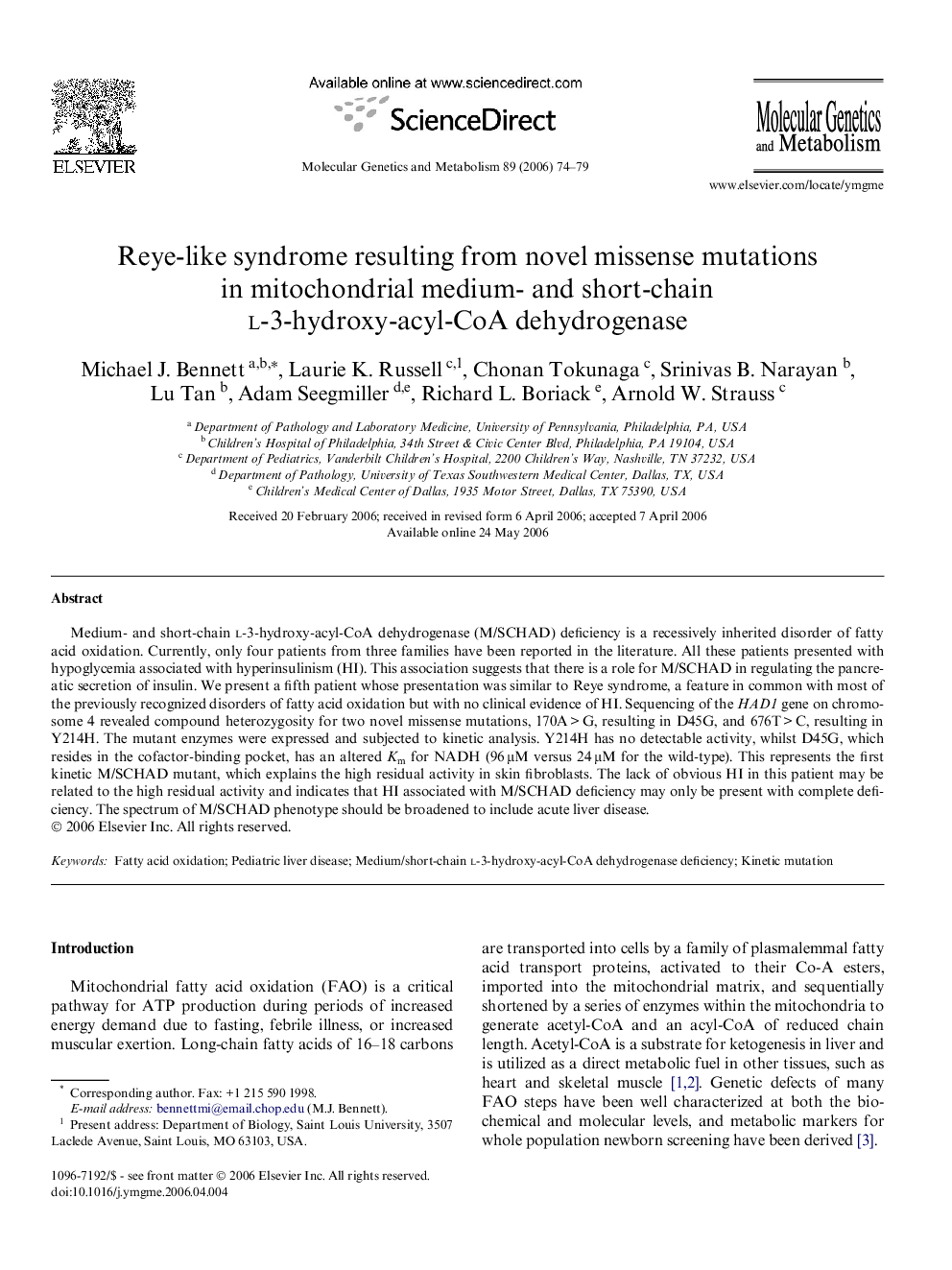| Article ID | Journal | Published Year | Pages | File Type |
|---|---|---|---|---|
| 2000292 | Molecular Genetics and Metabolism | 2006 | 6 Pages |
Medium- and short-chain l-3-hydroxy-acyl-CoA dehydrogenase (M/SCHAD) deficiency is a recessively inherited disorder of fatty acid oxidation. Currently, only four patients from three families have been reported in the literature. All these patients presented with hypoglycemia associated with hyperinsulinism (HI). This association suggests that there is a role for M/SCHAD in regulating the pancreatic secretion of insulin. We present a fifth patient whose presentation was similar to Reye syndrome, a feature in common with most of the previously recognized disorders of fatty acid oxidation but with no clinical evidence of HI. Sequencing of the HAD1 gene on chromosome 4 revealed compound heterozygosity for two novel missense mutations, 170A > G, resulting in D45G, and 676T > C, resulting in Y214H. The mutant enzymes were expressed and subjected to kinetic analysis. Y214H has no detectable activity, whilst D45G, which resides in the cofactor-binding pocket, has an altered Km for NADH (96 μM versus 24 μM for the wild-type). This represents the first kinetic M/SCHAD mutant, which explains the high residual activity in skin fibroblasts. The lack of obvious HI in this patient may be related to the high residual activity and indicates that HI associated with M/SCHAD deficiency may only be present with complete deficiency. The spectrum of M/SCHAD phenotype should be broadened to include acute liver disease.
